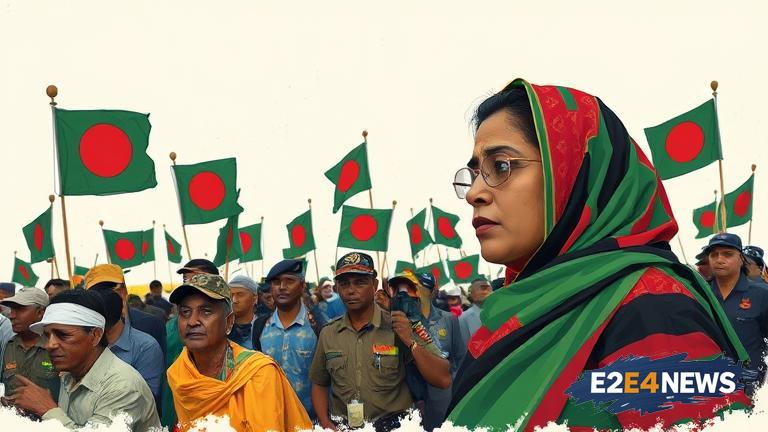It has been a year since Sheikh Hasina, the Prime Minister of Bangladesh, fled the country amidst a wave of protests and violence. Since then, the human rights situation in Bangladesh has continued to deteriorate, with numerous reports of enforced disappearances, torture, and restrictions on freedom of speech and assembly. According to Human Rights Watch, the government has failed to address these issues, and instead, has taken steps to further restrict the rights of its citizens. The organization has documented numerous cases of enforced disappearances, where individuals have been taken into custody by security forces and never seen again. In many cases, the families of the disappeared have been threatened and intimidated by security forces, preventing them from seeking justice. Torture is also widespread in Bangladesh, with many detainees reporting being subjected to physical and psychological abuse while in custody. The government has also restricted freedom of speech and assembly, with many opposition activists and journalists facing arrest and prosecution for speaking out against the government. The situation has been exacerbated by the COVID-19 pandemic, which has given the government an excuse to further restrict the rights of its citizens. Despite the challenges, human rights activists and organizations continue to speak out against the abuses, calling on the government to take immediate action to address the situation. The international community has also been criticized for its failure to hold the Bangladeshi government accountable for its human rights record. The United States, in particular, has been accused of turning a blind eye to the abuses, despite its claims to be a champion of human rights. The European Union has also been criticized for its failure to take decisive action, despite its strong statements on human rights. The situation in Bangladesh is a stark reminder of the challenges faced by human rights activists and organizations around the world. It highlights the need for continued vigilance and action to protect the rights of all individuals, regardless of their nationality or circumstances. The international community must do more to hold governments accountable for their human rights records, and to support those who are fighting for justice and human dignity. In Bangladesh, the struggle for human rights continues, with many activists and organizations facing significant risks and challenges. Despite these challenges, they remain committed to their cause, and continue to speak out against the abuses. The situation in Bangladesh is a complex one, with many different factors at play. However, one thing is clear: the human rights situation in the country is dire, and immediate action is needed to address it. The government of Bangladesh must take steps to address the abuses, and the international community must do more to support those who are fighting for justice and human dignity. The future of human rights in Bangladesh hangs in the balance, and it is up to all of us to ensure that the rights of all individuals are protected. The situation in Bangladesh is a reminder that human rights are not just a domestic issue, but a global one. It highlights the need for international cooperation and action to protect the rights of all individuals, regardless of their nationality or circumstances. The international community must work together to address the human rights challenges faced by Bangladesh, and to support those who are fighting for justice and human dignity. In conclusion, the human rights situation in Bangladesh is dire, and immediate action is needed to address it. The government of Bangladesh must take steps to address the abuses, and the international community must do more to support those who are fighting for justice and human dignity. The future of human rights in Bangladesh hangs in the balance, and it is up to all of us to ensure that the rights of all individuals are protected.





